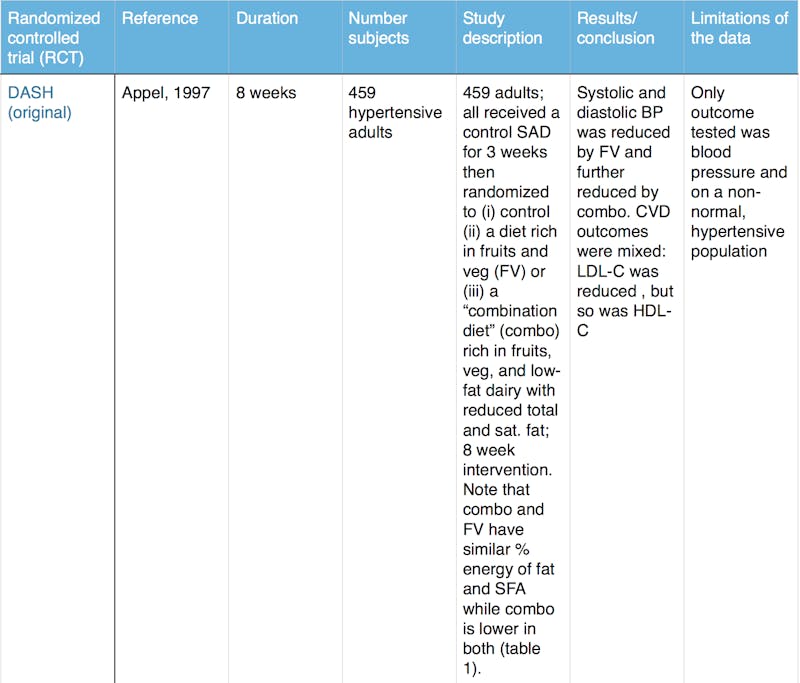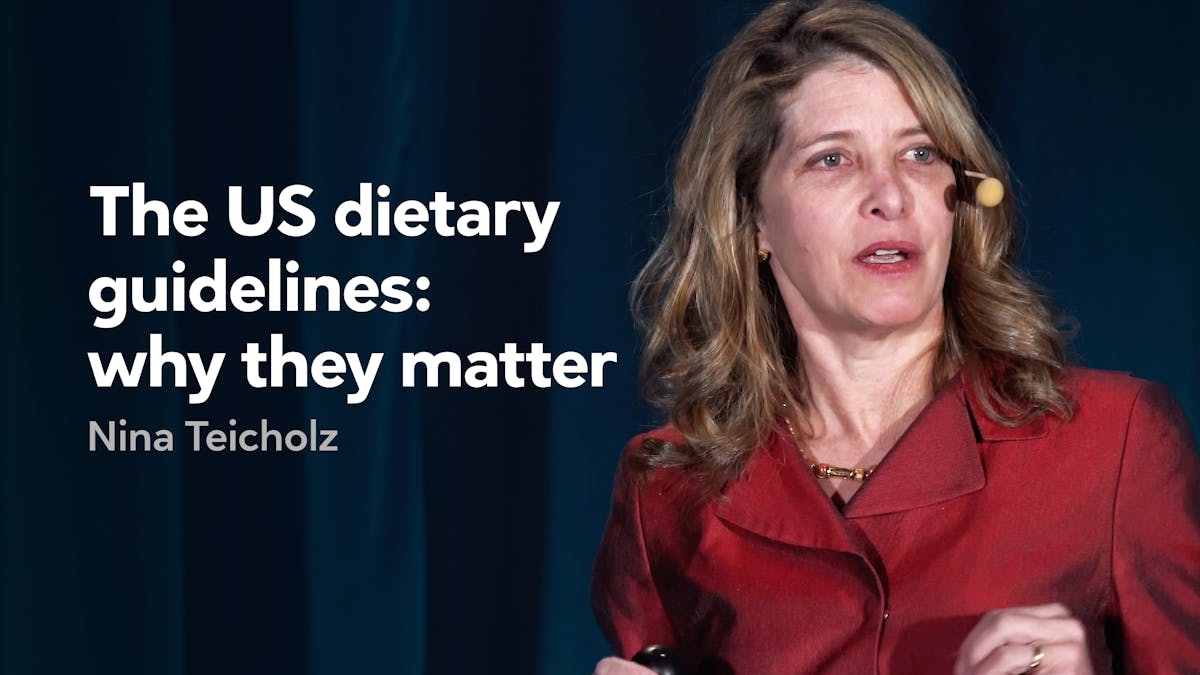Nina Teicholz: The deal on DASH
Recently, US News and World Report published its annual diet rankings, and as usual, DASH was at or near the top.
DASH is a diet that was designed to help reduce blood pressure for people with hypertension. It makes no sense to recommend this diet to a general population, for the main reason that DASH has pretty much only ever been tested on hypertensive ore pre-hypertensive subjects, who cannot be generalized to the population at large. Also, all trials have been short term, with outcomes indicating that DASH may actually cause heart disease–not prevent it.
Summarizing the trials
DASH has never been shown to be effective for preventing any nutrition-related chronic disease:
- DASH has never been shown to help people lose weight or prevent diabetes.
- DASH has, at best, mixed results for heart-disease risk factors. While it sometimes lowers LDL-C, (a possible, though unreliable sign of improving CVD risk) it invariably also lowers HDL-C and fails to lower (or raises) triglycerides (both reliable signs of increasing CVD risk).
- Only 1 DASH trial has lasted longer than 8 weeks (and that trial was only 4 months).
I’ve drawn evidence from a list of DASH studies in the 2015 US Dietary Guidelines advisory committee report, which cited DASH studies as evidence that its “Dietary Patterns” could prevent heart disease–but none of these trials did that.
The full table summarizing all the trials
The full table summarizing all the trials
In sum, a total of 2,162 people have been studied on DASH, in trials nearly all of which lasted 8 weeks or less. Only 60 of these 2,162 subjects were normal (not hypertensive/pre-hypertensive), and those 60 were adolescent girls.
The above is not a systematic review, obviously, so please feel free to let me know what is missing.
Note that when a small “high-fat DASH” study was conducted, it outperformed a regular DASH diet on improving cardiovascular risk factors. This is consistent with evidence that the vast majority of higher-fat diets outperform low-fat, high-carb diets on nearly all outcome markers.
If you use this evidence summary, please cite this post. Thank you!
Earlier
The Rivalry Between Atkins and Ornish: Low Carb Vs. High Carb
Nina Teicholz Responds to the News that BMJ Stands Behind Her Article





